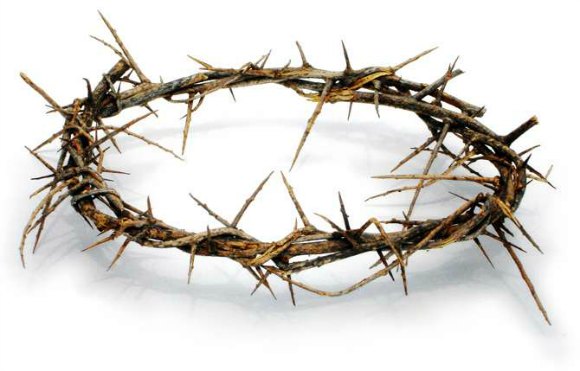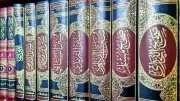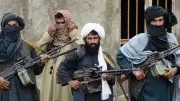 Andrew W. Fuller | The Fuller Report
Andrew W. Fuller | The Fuller Report
Last week’s events in Manchester, England, reminded me of the following article which I wrote ten years ago in March 2007. They are a reflection on the futility of the suicide bomber, compared to the death of Him who knew exactly what He was doing in offering His life as a sacrifice for the cause of His Kingdom.
A survivor who saw the driver of the truck said that he was smiling as he drove to his destruction. On October 23rd, 1983, a truck laden with explosives was crashed into the American marine compound in Beirut killing 241 American servicemen and several Lebanese. A similar incident at the same moment in the neighboring French compound killed 58. Two suicide bombers took more than 300 people with them into eternity. The Middle East has been filled with these incidents over recent years; Lebanon, Israel, Gaza and Iraq. The latter is presently the site of daily occurrences of this kind taking dozens, if not hundreds of lives.
In 1993, in his first western television interview Sheikh Hassan Nasrullah, the leader of the Hezbollah, attempted to explain the attitude of mind of a Muslim martyr. He spoke of one who drives a truck with a smile on his face, knowing he is entering into true life. He likened this to a person being in a sauna for a long time. “He is very thirsty and tired and hot and he is suffering from the effects of the high temperature. Then he is told that if he opens the door, he can go into a quiet, comfortable room, drink a nice cocktail and hear classical music. Then he will open the door and go through without hesitation, knowing that what he leaves behind is not a high price to pay, and what awaits him is of much greater value”[i]
During the Iran/ Iraq war, teenage Iranians would fold Qu’ranic inscriptions inside black bandannas and bind them around their foreheads. They would then head off to the front. Some of them marched into minefields to clear them in their quest for eternity; others willingly sacrificed themselves in waves of no-man’s-land warfare. One young soldier stated: “..to be martyred while opposing God’s enemies brings us closer to God. There are two phases to martyrdom: we approach God and we also remove the obstacles that exist between God and the people. Those who create obstacles for God in this world are the enemies of God”[ii] Another wrote, shortly before his death: “I’m not frightened of the day of resurrection…when the first drop of martyr’s blood is spilt, all his sins are cleansed”[iii]
According to a saying of Mohammed martyrdom equates to an atonement of blood sacrifice. Among six things the martyr receives from Allah, he is forgiven at the first shedding of his blood. [iv] In the Palestine of today there is little hope. The young man born in a refugee camp has no hope of returning to the land his ancestor’s farmed. His home may lie in ruins, victim of Israeli retribution. He has no hope of a worthwhile job and no hope of escape to another land where he can be treated as an equal and a citizen. The offer of the blessings of martyrdom is attractive by comparison.
Similarly, for the frustrated son of Muslim immigrants to the cities of Western Europe, there is an attraction. Growing up in the French HLM, or the English inner-city, color and cultural divide cause him to fall victim to derogatory racial epithets. Subtle profiling may hinder his opportunity for education and employment. He was born into the so-called developed world, but his roots are in the under-developed world his parents left decades before. Radical Islam offers him a hope and an identity.
We do not know what exactly was in the minds of Mohammed Atta and his brethren in the days preceding September 11, 2001, nor in the mind of Abdel-Basset Odeh on the morning of March 27, 2002 before he walked into a Netanya hotel and detonated his bomb amidst a crowd of Israeli Jews celebrating Passover. They are among the most well-known of multitudes down the ages who have pursued a suicidal course on behalf of the Lord of Death. Whether attracted by a quiet release from pain, the memorial of a blaze of glory or the carnal pleasure of perpetual virgins, the attraction of suicide in the cause of Islam is selfish. Crowned with the words of Allah, burdened by personal pain and clinging to a vain promise of atonement, the martyr enters an empty eternity in search of a comfy chair and a long cool drink.
But we do know what was in the mind of another who went willingly to his death. The Word of God tells of him: Who being very nature God, did not consider equality with God something to be grasped, but made himself nothing…humbled himself and became obedient to death – even death on a cross![v] He who knew no wrongdoing, who was pure and spotless, willingly gave his life, not for personal gain, but for the salvation of his brothers. As he went to his death he struggled under the weight, not of a bomb, but of a wooden cross whose explosive consequence has shattered the darkness and restored the lives of a multitude of broken people. As he allowed himself to be nailed to that cross, surrendering himself, he allowed not a headscarf filled with Arab script, but a crown of thorns to be pressed down upon his brow. And there upon the brow of the King of Kings spout a thousand bloody pinpricks, each one offering a cleansing atonement to the life of a would-be martyr; each one proclaiming love for the sons of Ishmael.
On a dark day, long ago He stumbled under the weight of His cross. Another was recruited to carry it for him. Nothing justifies the violent actions of the Shahid, the Muslim martyr, but our challenge today is to lay aside our own lives, lift the burden of his cross and share for him the power of the blood that can set all men free!
[i] Robert Fisk -The Great War for Civilization – 2005, Alfred A Knopf – p. 477
[ii] Ibid – p. 203
[iii] Ibid – p. 286
[iv] Al-Miqdam ibn madikarib Ma’dikarib MISHKAT AL-MASABIH “The martyr receives six good things from Allah: he is forgiven at the first shedding of his blood; he is shown his abode in Paradise; he is preserved from the punishment in the grave; he is kept safe from the greatest terror; he has placed on his head the crown of honour, a ruby of which is better than the world and what it contains; he is married to seventy-two wives of the maidens with large dark eyes; and is made intercessor for seventy of his relatives.” Tirmidhi and Ibn Majah transmitted it.
[v] Philippians 2:6 – 8




